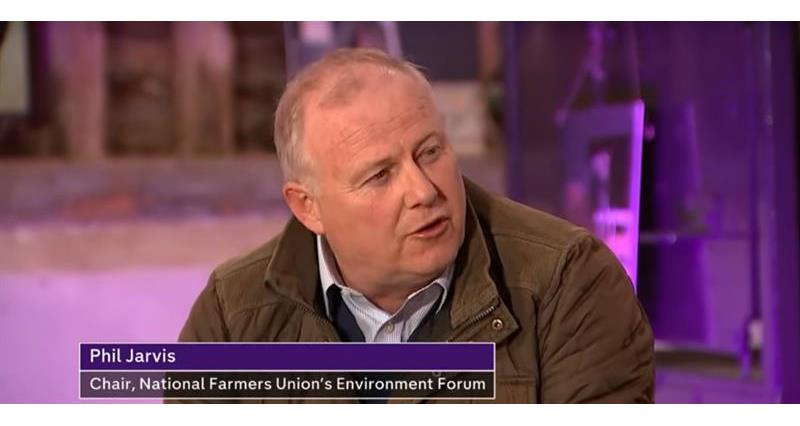The State of Nature Report examines the impact of human activity on wildlife in the UK, with the key message focusing on the decline in abundance and distribution of the UK’s species in both the last 50 years and the last decade.
Alongside other pressures including climate change, urbanisation, pollution, hydrological change, invasive non-native species (INNS) and woodland management, agricultural management was flagged as a key driver in the decline of biodiversity in the UK.
Phil spoke eloquently about the challenges facing the farming industry in caring for the natural environment and did well to challenge the feature’s language around ‘poisoning the land’, which at one point conjured in my mind a Dick-Dastardly-style caricature of a farmer pouring a bottle marked ‘XXX’ onto flower margins. Less than helpful language as background to what was otherwise a respectful and informed discussion.
The panel, which also included Professor Rosie Hails - Director of Nature and Science at the National Trust - and author and naturalist Mark Cocker, appeared to agree on a number of key points. These rang true with our CFE messages of working in partnership to promote sustainable practices and I think they offer a strong jumping-off point for constructive conversation around how to address the challenges raised in the State of Nature 2019 Report.
Firstly, there is a need for different groups within the farming and conservation communities to work together and find common ground.
The publication of the State of Nature 2019 brings with it a risk of a blame game in which fingers are pointed and divisions arise, at the very time when groups with shared goals should be finding ways to work together. When we recognise that many us is are working towards the same thing, a healthy natural environment which delivery public goods alongside feeding the nation, it’s a good start for finding collaborative solutions.
Secondly, government support is needed to tackle the challenge.
Farmers operate their businesses within a system shaped by government, and let’s not deny that it’s a tough business to be in most of the time. To allow farmers to run productive, environmentally and economically sustainable businesses, better support for environmental management on the 70%+ of UK land used for agriculture is needed. The new Environment and Agriculture bills and the new Environment Land Management Scheme are opportunities to deliver this, but the power sits at Westminster and they need to get this right.
Finally, the message that this is a challenge for all of us.
We aren’t all farmers, but we’re all consumers and I hope most of us are voters. Many of us are members of conservation organisations, or volunteers, or visitors to the countryside. Farmers may be custodians of our countryside, but we all have a responsibility to step up and support those custodians in their care of our environment, in whatever way we can.
- Blog by Laura Harpham, CFE Project Officer.
